DT Swiss’s FR 1500 Classic MTB wheelset is designed for the rough and tumble of downhill and freeride, replacing the FR 1950 Classic.
The wheels are built using DT’s updated-profile alloy FR 541 rims, laced to 240 hubs using the brand's Competition spokes.
By dropping front-wheel spoke count to 28, and combined with the rim modifications, DT claims it has lowered their weight by seven per cent compared to the old model.
My pair of 29in test wheels weighed 2,079g (1,009g front, 1,070g rear), an impressive figure for what are claimed to be the burliest hoops DT Swiss makes.
Out on the trail, I was surprised by their soft and muted – almost forgiving – feel, flying in the face of my expectations given their DH credentials.
However, they proved to be tough, entirely resisting buckling, denting, dinging and even spoke de-tensioning during the test period, despite my best efforts to find weaknesses.
If you’re after a set of robust, trail-hushing aluminium wheels for your enduro, downhill or freeride bike, that don’t cost an absolute fortune, the FR 1500 Classic wheelset should be on your shortlist.
DT Swiss FR 1500 Classic wheels details and specifications
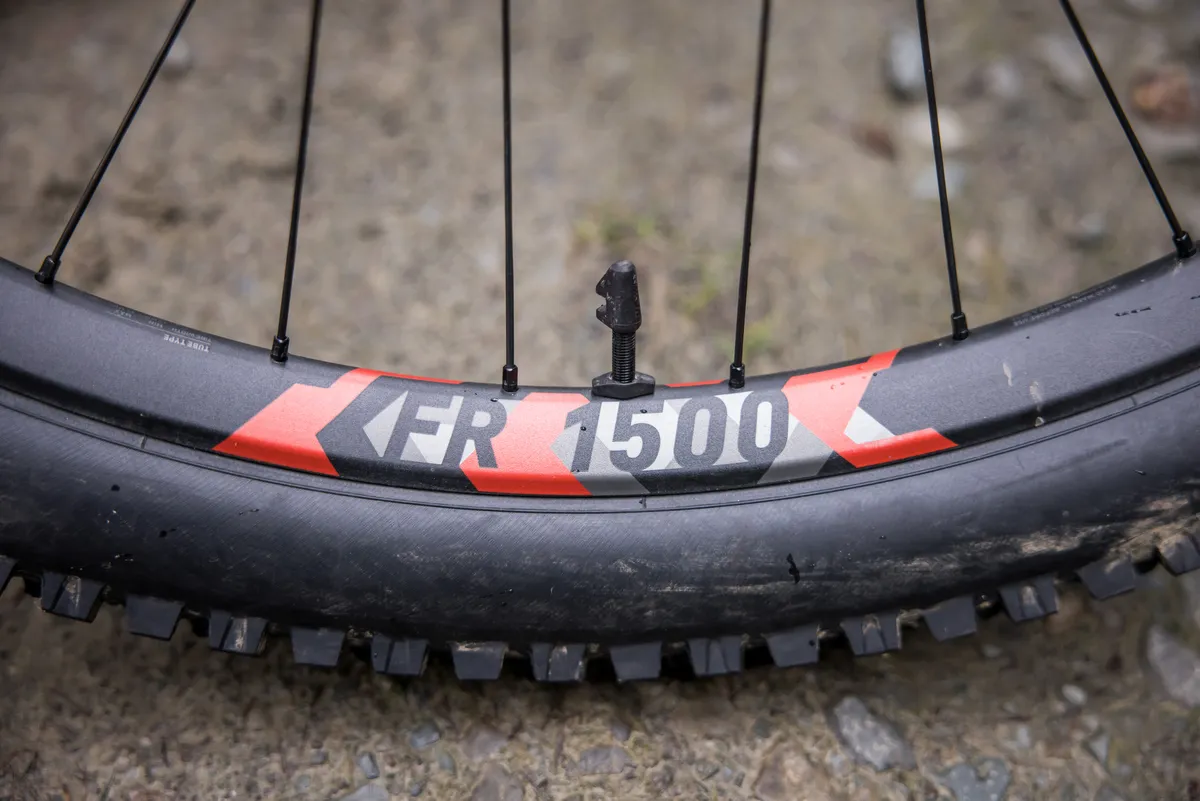
Headlining with the FR 541’s all-new rim, according to DT it has a modified profile and increased construction material in certain places to improve its impact resistance.
The FR 541 has a 30mm internal width – which is pretty standard for rims these days – and a 21mm depth, which is also fairly normal.
A modified flange shape is claimed to improve performance by reducing the chances of pinch flats by up to 17 per cent (compared to the FR 1950), according to research conducted by a “leading tyre supplier”.
The rims are pre-taped and tubeless valves are included.
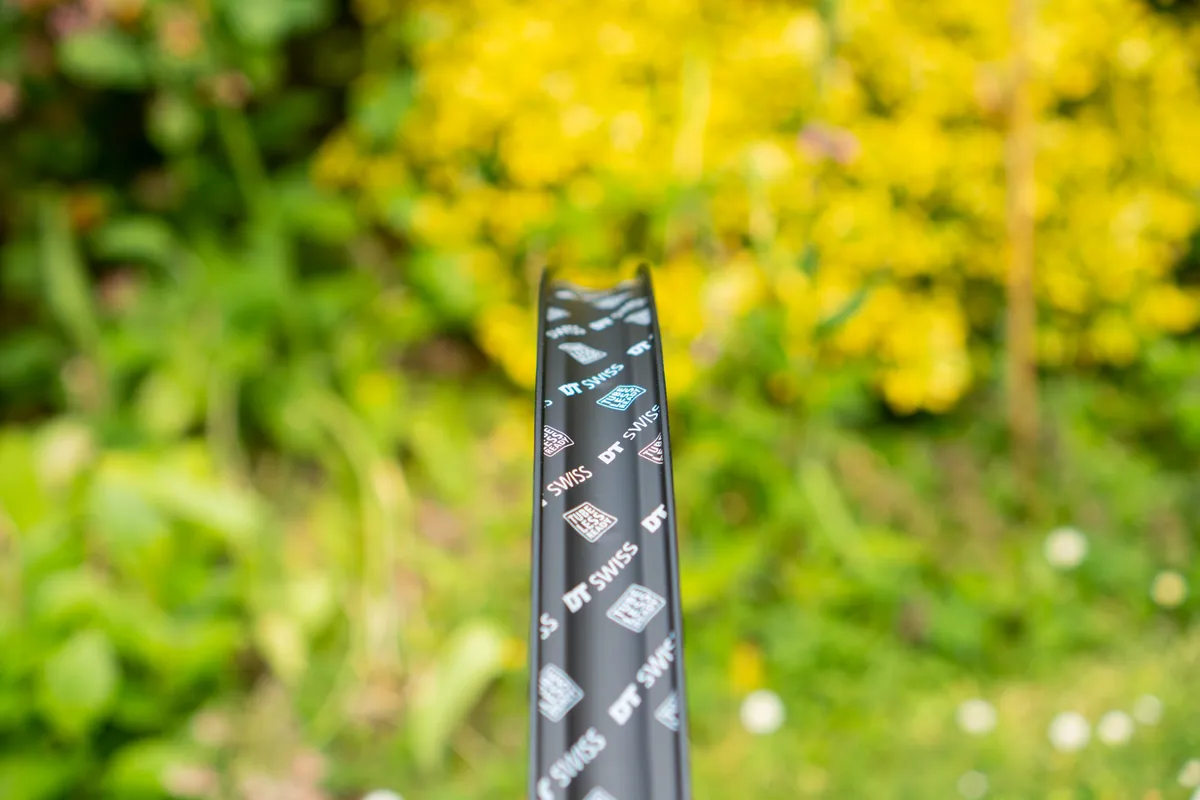
In a bid to save weight, DT has reduced the number of Competition spokes in the front wheel to 28, but the rear wheel still runs 32 for all-important strength.
Pro Lock nipples are used in the rim’s eyelets. These have factory-fitted thread adhesive to reduce the chances of the spokes undoing.
They're laced to the highly regarded 240 hub, this model sporting large spoke flanges designed for the Classic wheelset’s J-bend spokes rather than the flatter flanges needed for straight-pull versions.
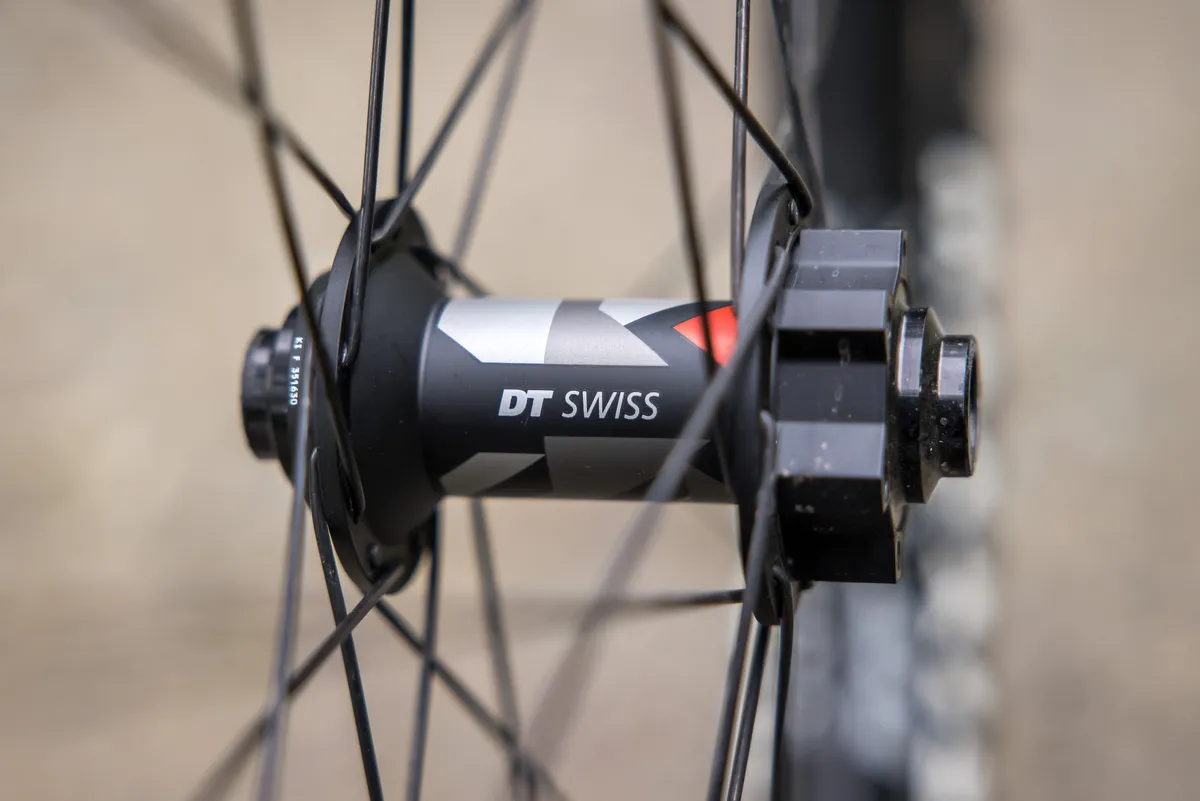
It uses DT’s Ratchet EXP 36 freehub with 10-degree engagement points and tool-free freehub replacement. It’s compatible with XD Driver and Microspline cassettes, each design requiring a new freehub.
They boast the highest level 5 ASTM classification, making them certified for DH use. However, they do have a 140kg system weight limit.
My set of 29in 110x15mm Boost, 6-bolt disc front and 148x12mm Boost, XD Driver, 6-bolt disc rear wheels weighed 2,079g (1,009g front, 1,070g rear). That's slightly heavier than DT’s 2,021g claims.
DT Swiss FR 1500 Classic wheels performance
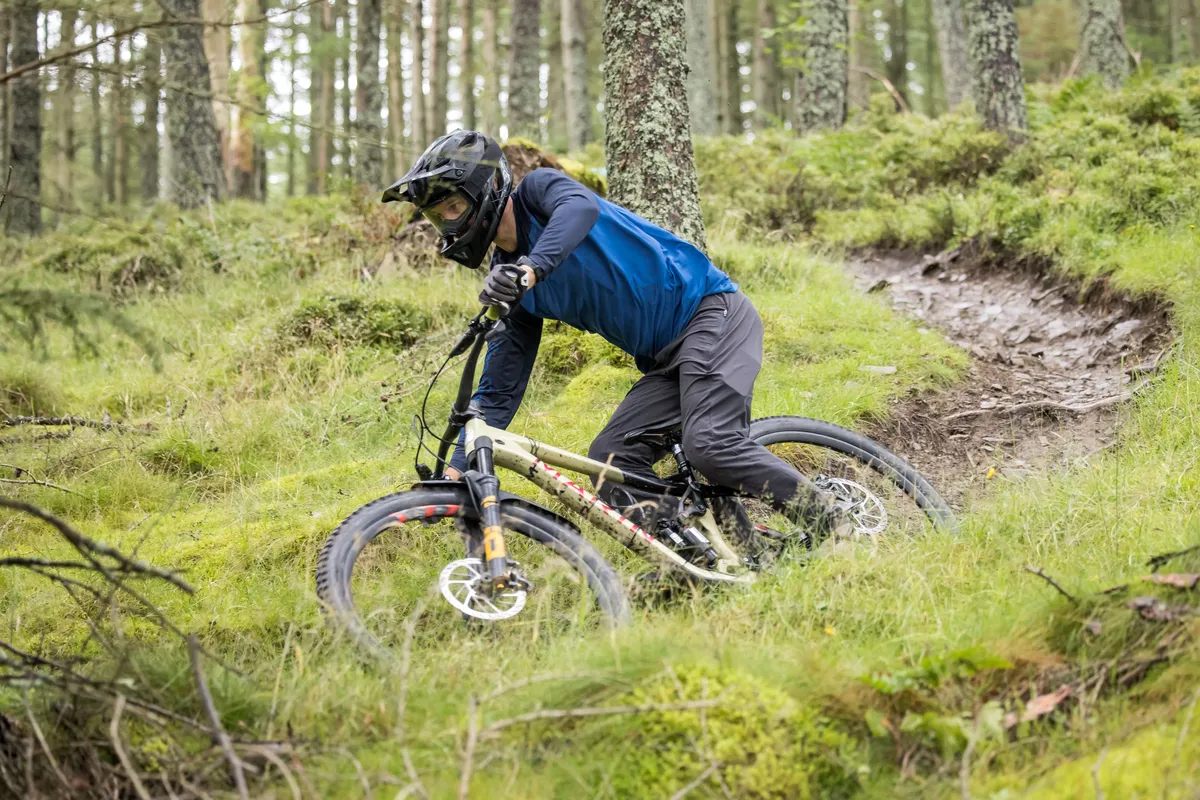
I tested the FR 1500 Classic wheels on a Marin Alpine Trail XR. Its enduro-riding intentions should be well within the comfort zone of the wheels’ hardcore DH and freeride rating.
However, as a seasoned and well-known smasher of mountain bike wheels, I feel the terrain I ride and my riding style are more than adequate to put them through their paces.
I tested them on my home trails in Scotand’s Tweed Valley, host to the UK’s round of the Enduro World Cup, the 2023 XC MTB World Championships and a round of the UK’s national DH series.
DT Swiss FR 1500 Classic wheels setup and tubeless inflation
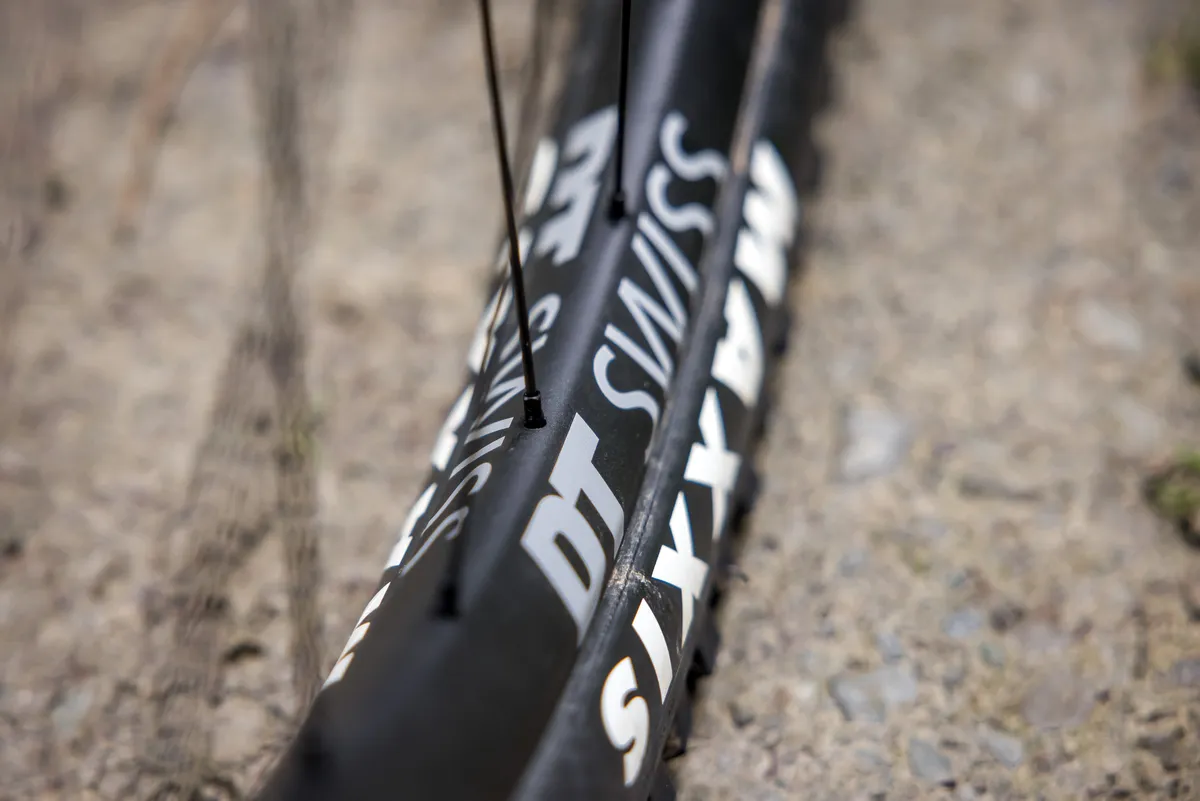
Using Maxxis DoubleDown-casing tyres, installation was quick and easy. By pushing the tyres’ beads into the centre of the rim, I didn’t need to use tyre levers to fit them.
Equally, tubeless inflation was quick and easy using a high-pressure pump such as Topeak’s Tubi 2Stage, rather than requiring an air compressor or tubeless inflator. This is great news for quick and easy tyre changes.
At 25psi, the tyre’s bead had fully seated on the rim’s hooks, popping satisfyingly into place.
During testing, there was some pressure loss between rides. However, it’s impossible to identify the root cause – porous tyre carcasses, an ill-shaped bead, valve-stem sealing issues or rim-tape installation can all lead to pressure loss.
Regardless, checking tyre pressures prior to riding is important, and the pressure loss wasn’t significant enough or quick enough to affect performance while riding, even if I was out for an entire day.
DT Swiss FR 1500 Classic wheels on-trail feel
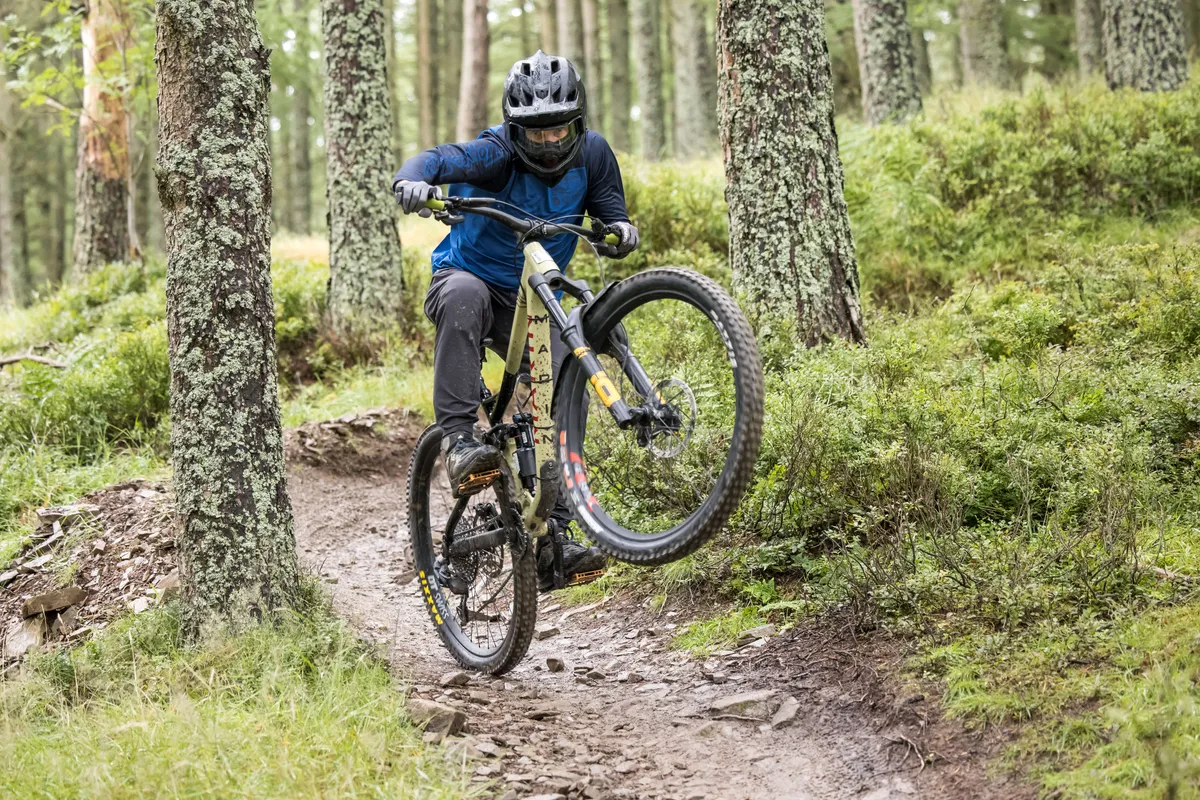
Despite the hard-hitting DH remit of the FR 1500s, how smooth they feel on the trail is not only surprising, but one of their standout qualities.
Dive headlong at high speed into rough sections of trail and the wheels insulate plenty of the harshest and most off-putting bumps.
Equally, trail buzz from smaller high-frequency chatter is virtually non-existent.
Not only is hand fatigue vastly reduced compared to stiffer, less forgiving wheels, but control is improved.
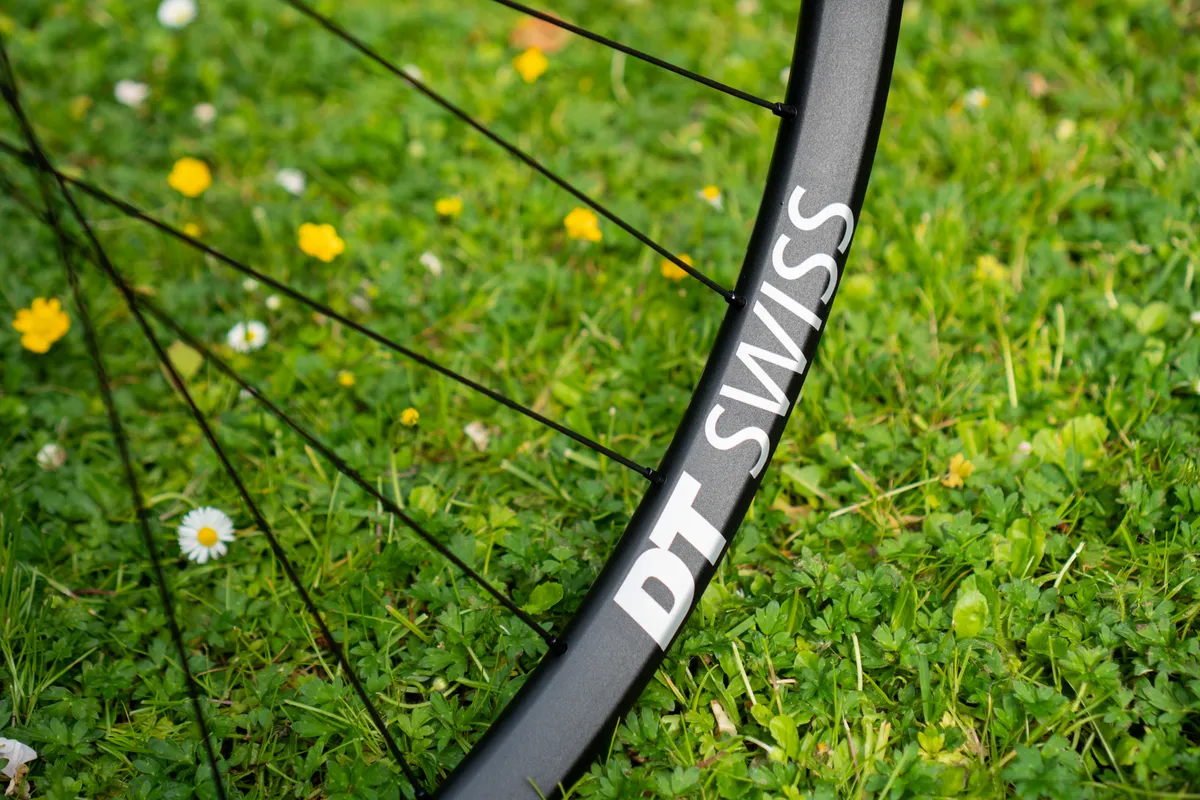
Insulating the rider from bumps on the trail reduces the chances of getting deflected offline, helping increase control, speed and confidence.
However, this doesn’t cause them to feel vague or floppy when steering accuracy is the number one priority.
Slam either the front or rear wheel into high-load corners – regardless of their radii – and your desired line is tracked beautifully by the bike.
The spokes don’t twang – their tension remaining constant – when the wheel is loaded and unloaded around turns, helping them run quietly.
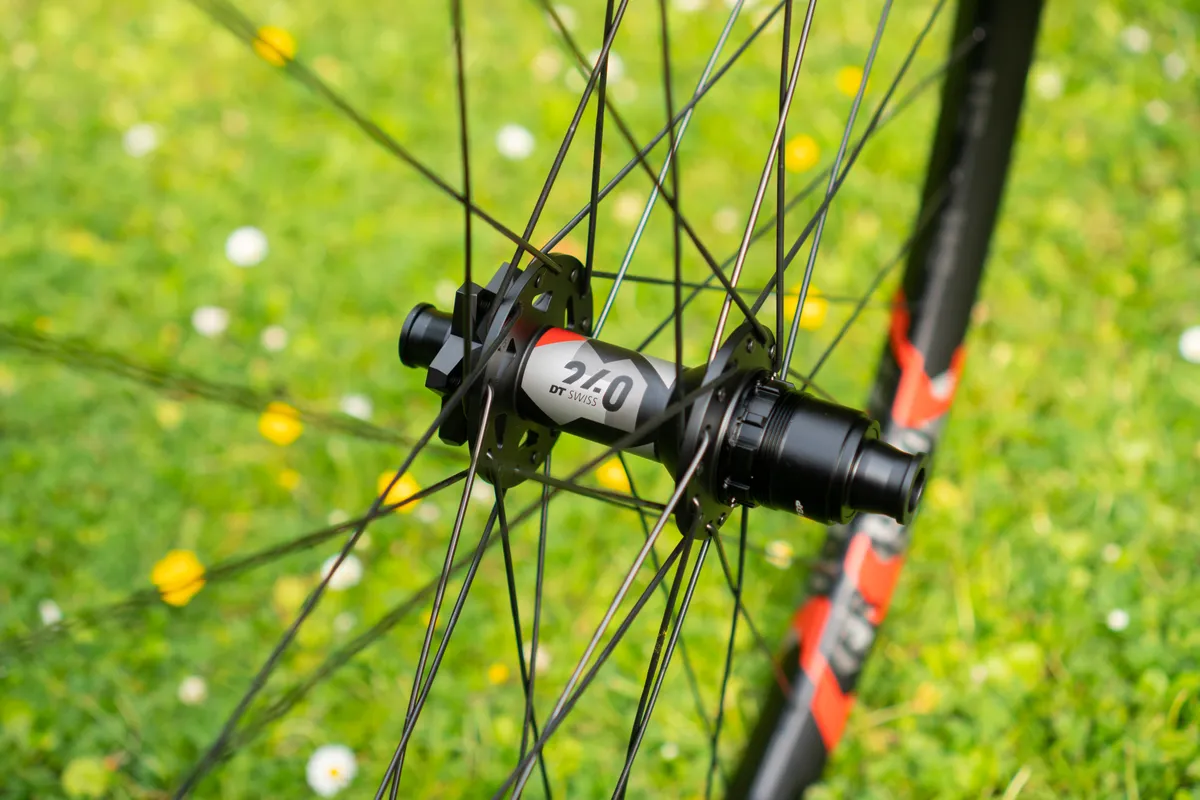
DT’s 10-degree hub-engagement points, while not as quick as an Industry Nine Hydra hub, aren’t slow.
Even when cranking up steep inclines with pauses in my pedal revolutions to avoid striking the floor, the hub didn’t leave gaps in my forward motion.
DT’s redesigned rim shape, that’s claimed to improve pinch-flat resistance, seems to work well.
Bottoming out the rim and pinching the tyre is a regular inevitability when riding the rocky, gnarly terrain of the Tweed Valley.
However, I didn't suffer a single puncture, indicating the rims do as DT claims. Not puncturing is unusual for me, even though I run between 26 and 31psi in the rear tyre, which is arguably pretty hard for my 76-77kg kitted-up weight.
DT Swiss FR 1500 Classic wheels reliability and maintenance
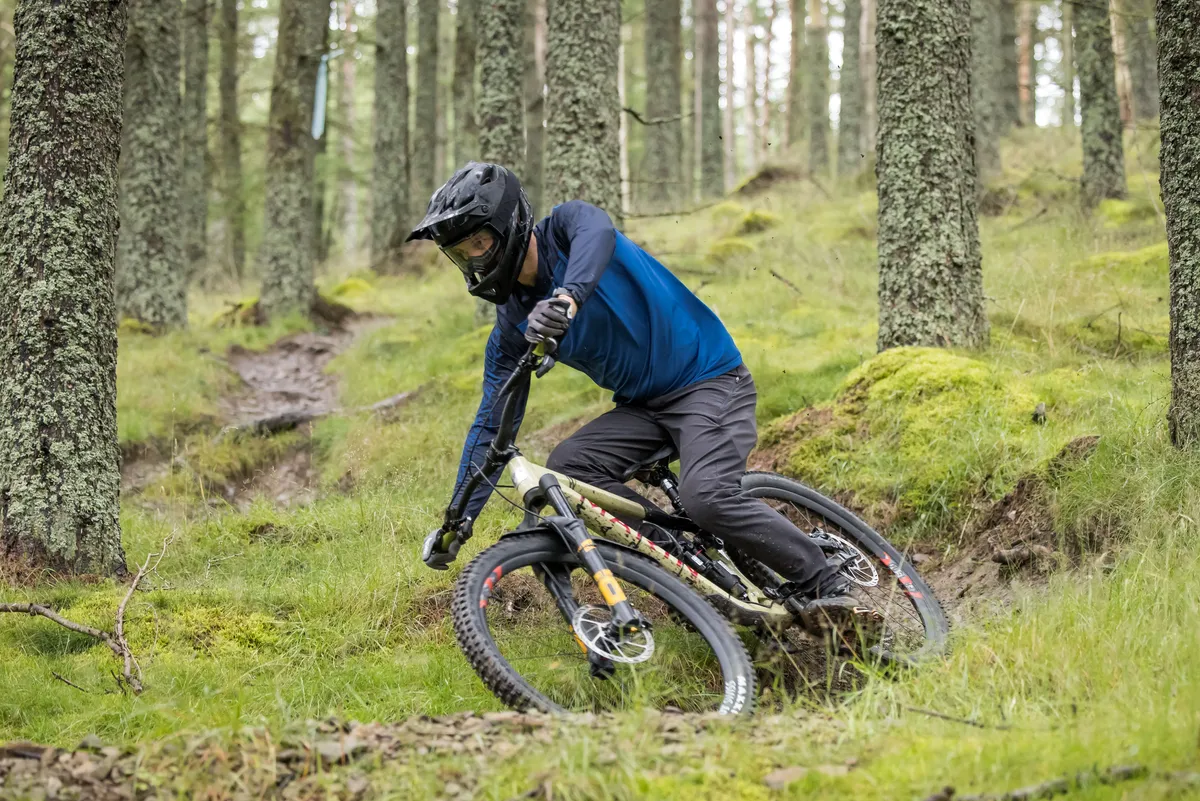
Due to a lack of lateral flex, they’re not cycling in and out of tension. Combine this with the Pro Lock nipples and I didn’t have to re-tension either the front or rear wheel during the entire test period.
This is unusual but also impressive, given most wheels I’ve ridden on or tested recently needed frequent re-tensioning.
Clearly, DT has nailed the build on the FR 1500.
In the same vein, and despite my best efforts, they remained straight and true.
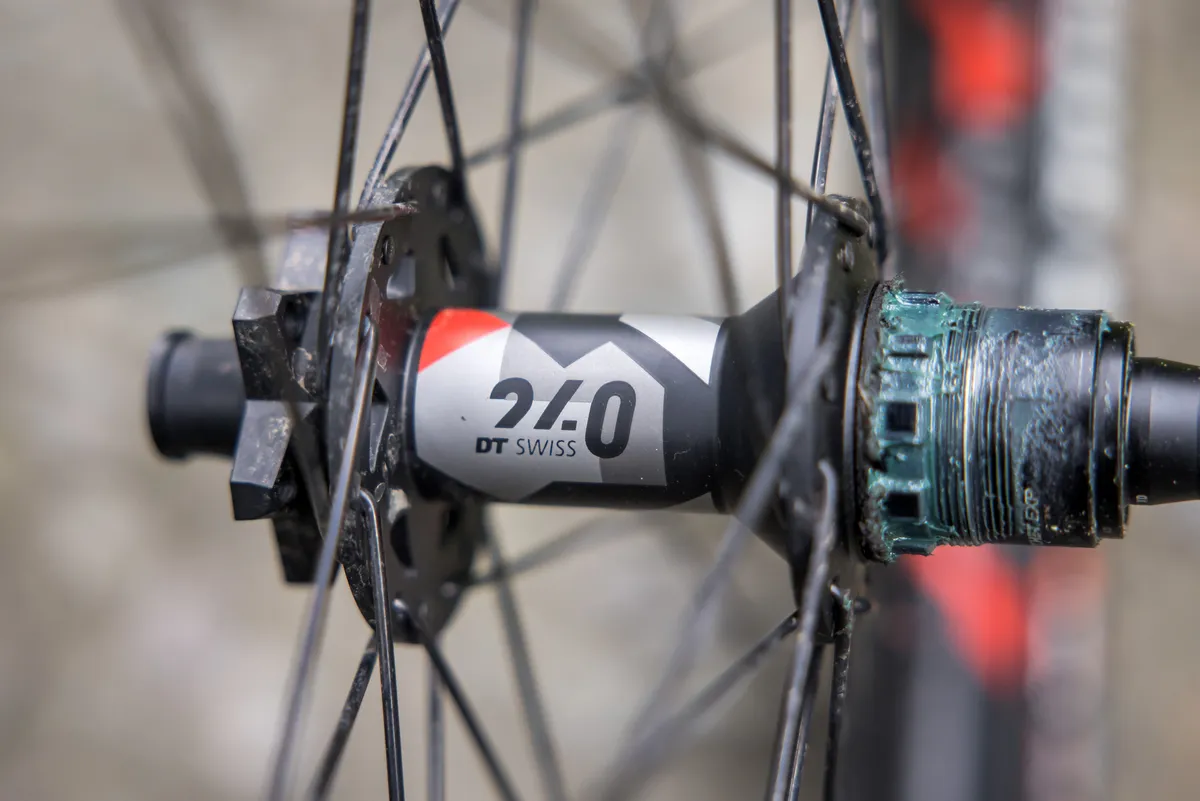
They also resisted dings, dents and flat spots, even after some hard bottom-outs onto the trail’s surface.
The hub’s performance hasn’t degraded, the freehub and bearings spinning freely. My long-term experience with the MTB 240’s design indicates that bearing lifespans are impressive, even in the wet UK climate with frequent high-pressure washing.
The rim’s matt, slightly textured finish is hard to clean once it’s dirty, its finish retaining mud residue even after being scrubbed. Cleaning the rims takes time and is labour-intensive; this is frustrating given their cost.
Similarly, the rim’s surface is prone to scratching quickly; they look well used after only a few rides. This might put off some riders, but in my eyes aesthetics aren’t as important as performance.
How do the DT Swiss FR 1500 Classic wheels compare?
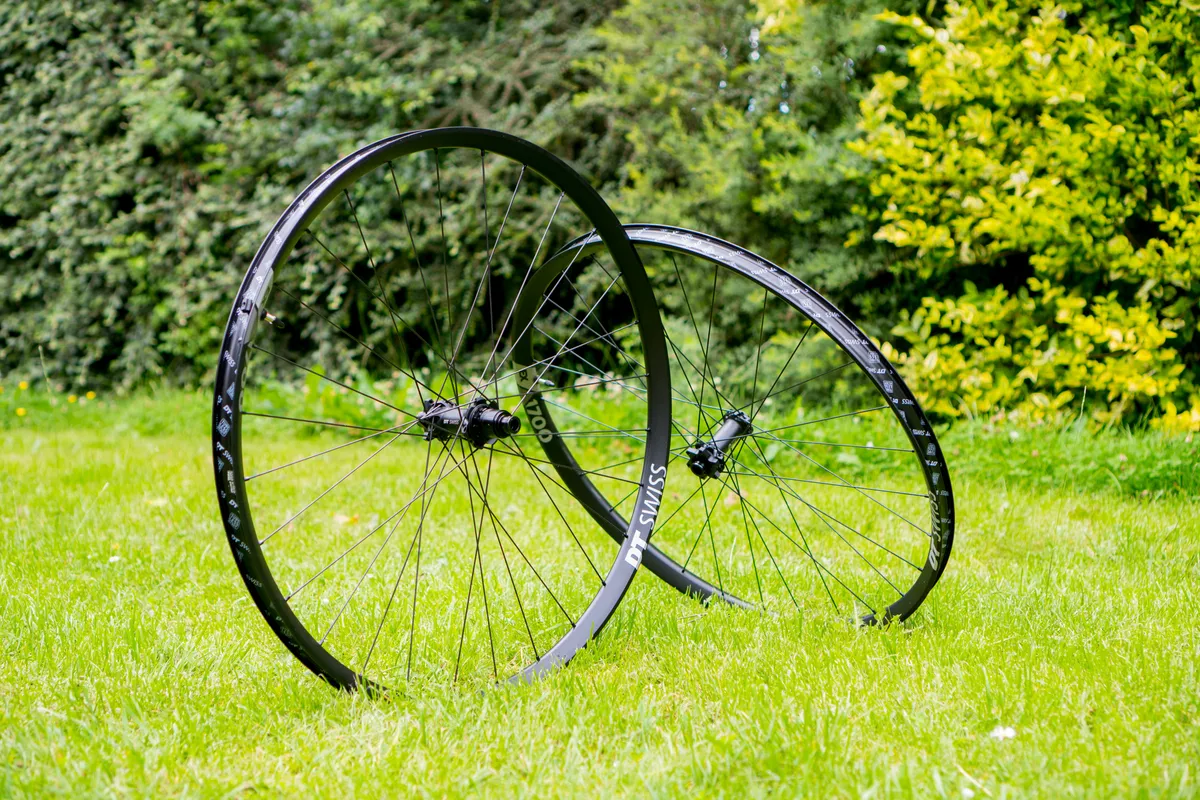
Compared to DT’s other high-spec alloy wheels, the HX 1700 and EX 1700, weighing 2,079g a pair, they’re lighter than the ebike HX 1700 (2,188g) but slightly heavier than the enduro-focused EX 1700 (2,023g).
Starting with the HX 1700, the FR 1500 is tougher. While the HX 1700 required regular spoke re-tensioning, and even a slight true, the FR 1500’s build remained steadfast. However, neither model suffered any dings or dents during either of their test periods.
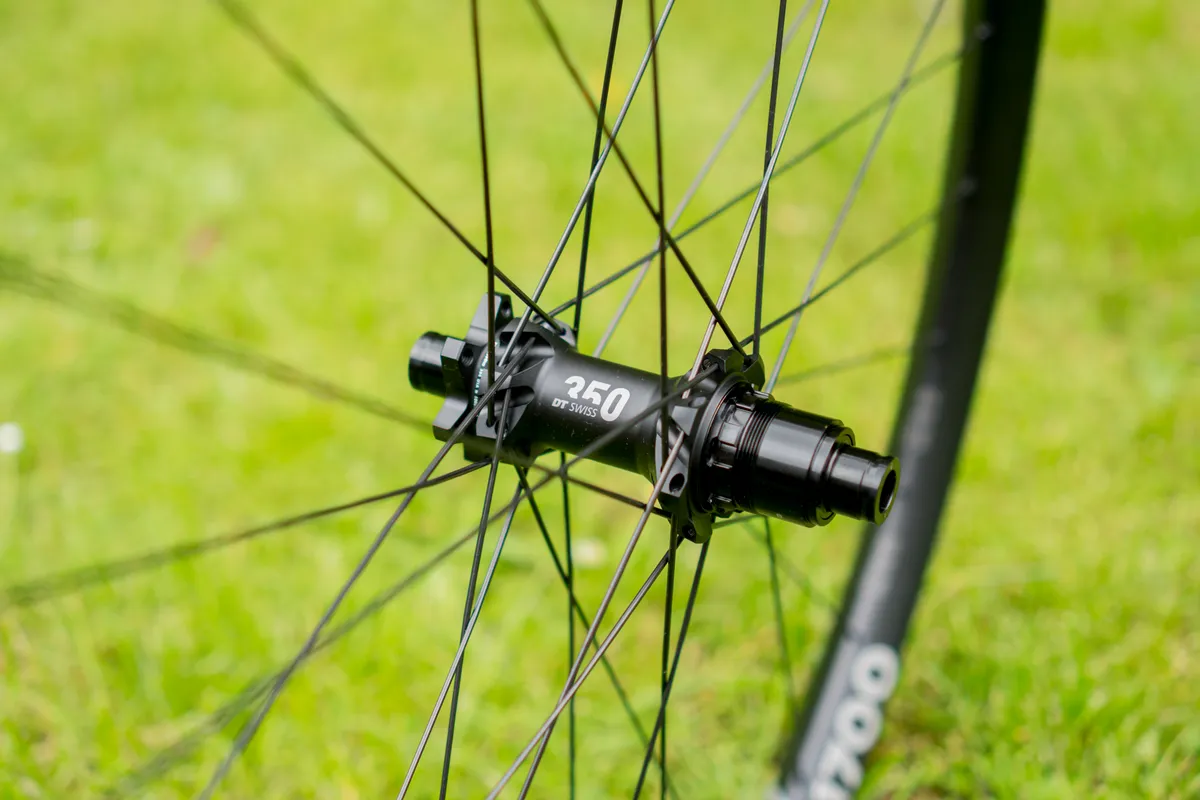
Although the differences are minimal, the 240 hub has a better spec than the 350 that’s fitted to the HX 1700s.
If I had to choose between these two wheelsets for an electric mountain bike, I’d opt for the new FR 1500s, given they’ve got better hubs, are lighter and appear to be stronger. They retail for almost the same price too.
Against the EX 1700, the FR 1500 wheels are marginally heavier. However, they proved to be smoother, reverberating less harshness into my hands when riding.
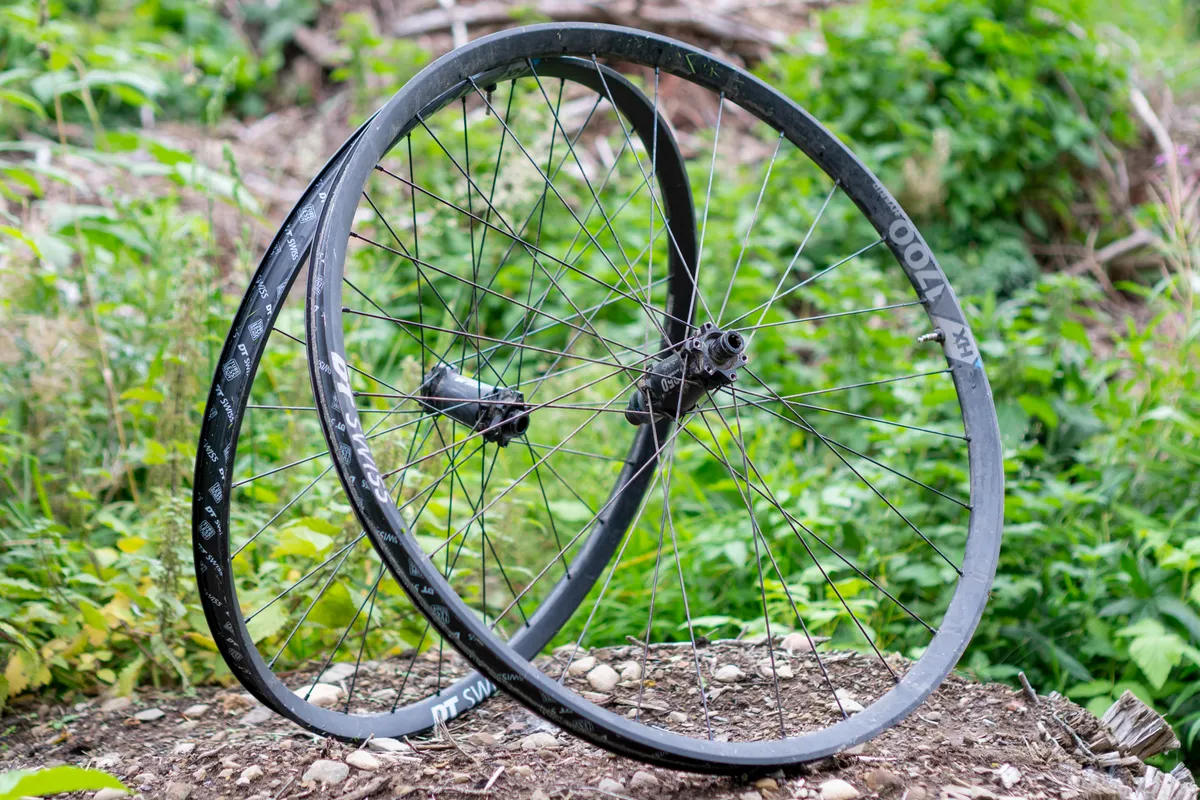
Although the EX 1700 excelled when ridden hard, the FR 1500 wasn’t any less accurate or tough.
During the EX 1700’s test period, I didn’t have to re-tension their spokes or true the rim, and it’s the same story for the FR 1500.
The FR 1500’s 240 hub is better than the EX 1700’s 350, and just like the EX 1700, their cost is virtually identical.
Choosing between these two sets, the FR 1500 is the pick of the bunch.
DT Swiss FR 1500 Classic wheels bottom line
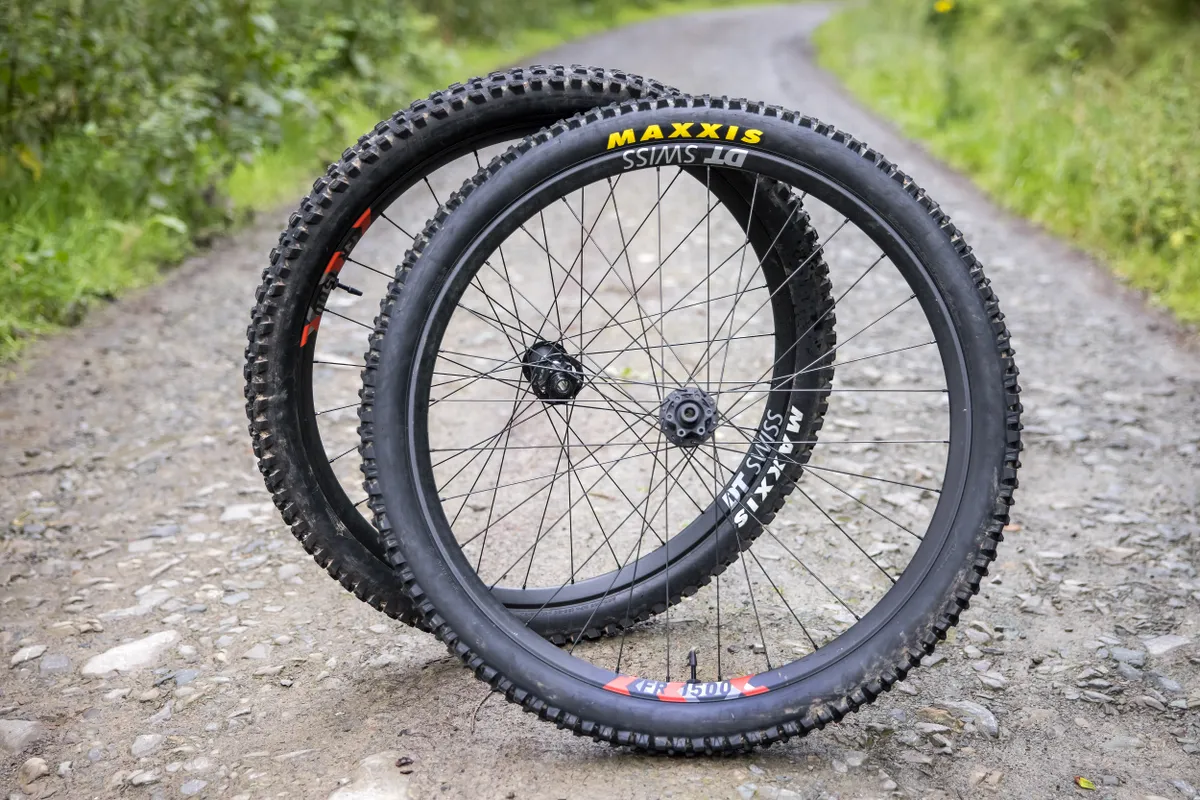
Tough, reliable and virtually maintenance-free, the FR 1500 is a smooth-feeling set of DH-focused wheels, weighing only a fraction more than the brand’s enduro offering.
Add in top-spec hubs, a first-class build from the DT factory and a reasonable price tag, and there’s almost nothing to criticise. Being picky, a gloss finish would make them easier to clean and less prone to scratching.
If you’re in the market for some of the toughest, lightest and most durable rims available, these should be at the top of your list.
Product
| Brand | dt_swiss |
| Price | 899.80 EUR,799.98 GBP,1520.80 USD |
| br_whatWeTested | DT Swiss FR 1500 Classic, 29in 110x15mm Boost, 6-bolt disc front and 148x12mm Boost, XD Driver, 6-bolt disc rear |
| Weight | 2079.0000, GRAM (DT Swiss FR 1500 Classic 29in) - 29in 110x15mm Boost, 6-bolt disc front and 148x12mm Boost, XD Driver, 6-bolt disc rear |
Features
| br_rimMaterial | aluminium |
| br_tubelessCompatibility | tubeless_ready |
| br_tyreType | tubeless |
| br_wheelSize | 29in_700c |
| br_brakeTypeSimple | disc |
| br_hubs | DT Swiss 240 Classic |
| br_spokes | DT Swiss Competition |
| br_freehub | XD Driver and Microspline |
| br_rimDepth | 21mm |
| br_rimInternalWidth | 30mm |
| br_spokeCountRear | 32 |
| br_spokeCountFront | 28 |
